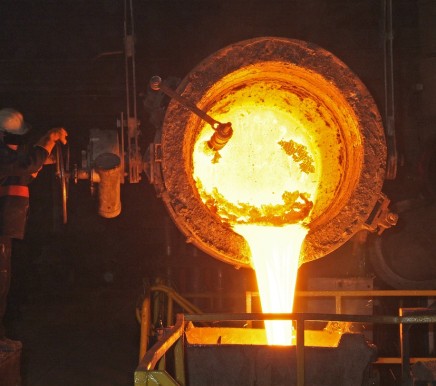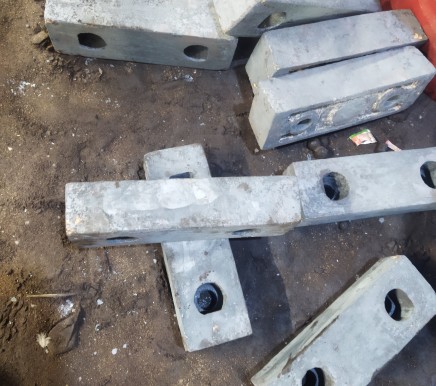WHAT WE DO
Metal Refining
Metal refining is the alchemical art that transforms raw ores into valuable, pure metals ready to power industries and innovations. In this comprehensive guide, we explore the diverse methods of metal refining, uncovering the science behind each technique and its role in producing metals that drive our modern world.

Mastering Metal Refining: Unveiling Techniques for High-Quality Metals
Smelting - Forging Purity from Ores
Smelting, the ancient art of heat and transformation, extracts metals from ores. Learn how ores and carbon-rich materials are combined to liberate metals while impurities are expelled as slag. This fundamental technique fuels the foundation of many metal industries.
Electrolytic Refining - Harnessing Electric Elegance
Electrolytic refining, a marvel of electrochemistry, purifies metals through controlled electricity. Delve into how this method separates metals into their elemental forms, enriching them through selective deposition while leaving impurities behind.
Zone Refining - A Symphony of Purity
Zone refining, a precision ballet, elevates semiconductor and metal purity. Explore how a molten zone meanders through a bar, meticulously sweeping impurities to one end and leaving behind metals of exquisite refinement.


Artistry in Precious Metal Purification
Cupellation, a noble dance, extracts purity from precious metals like gold and silver. Uncover how controlled oxidation transforms impurities into easily removable compounds, creating refined metals coveted across history.
Distillation - Vaporizing the Impurities
Distillation, a transformative phase, separates metals by their boiling points. Delight in the science of vaporization as metals with differing boiling points part ways, offering insights into crafting high-purity metals like zinc and mercury.
The Enigmatic Dance with Chlorine
Chlorination, a chemical embrace, ushers impurities away through volatile chlorides. Journey through the interaction of metals with chlorine, leading to volatile compounds that leave purified metals in their wake.
Hydrometallurgy - Aqueous Alchemy for Metal Extraction
Hydrometallurgy, the aqueous realm, dissolves and separates metals using chemical reactions. Learn about leaching, solvent extraction, and precipitation as water acts as the alchemist's medium to refine metals from ores.


Pyrometallurgy - Forging Metals through Fire
Pyrometallurgy, the elemental forge, melds metals through intense heat. Explore processes like roasting and smelting as they wield temperature to eliminate impurities, crafting metals suited for industries worldwide.
Refining Precious Metals - The Crown Jewels of Purity
Refining precious metals, the ultimate craft, merges chemistry and precision to create gems like gold, silver, and platinum. Understand how intricate processes yield metals of unparalleled beauty and monetary worth.
Conclusion: Crafting the Future with Refined Metals
From the dawn of smelting to the modern realm of electrolytic mastery, metal refining has shaped civilizations and industries. Each technique, a chapter in this grand narrative, contributes to the mosaic of refined metals that drive innovation, infrastructure, and progress in our contemporary world.
FAQs: Your Top Questions Answered
Metal refining is the process of purifying raw metals to remove impurities and create high-quality, usable metals for various industrial applications.
Metal refining is crucial for obtaining metals with the desired properties for different industries. It ensures that metals are free from impurities that could compromise their performance and integrity.
Common metal refining methods include smelting, electrolytic refining, zone refining, cupellation, distillation, chlorination, hydrometallurgy, and pyrometallurgy.
Smelting involves heating ore along with a reducing agent to separate the metal from impurities. The impurities combine with flux to form slag, leaving behind molten metal.
Yes, metal refining can have environmental impacts due to energy consumption, emissions, and waste generation. Many refineries implement measures to minimize their environmental footprint.
